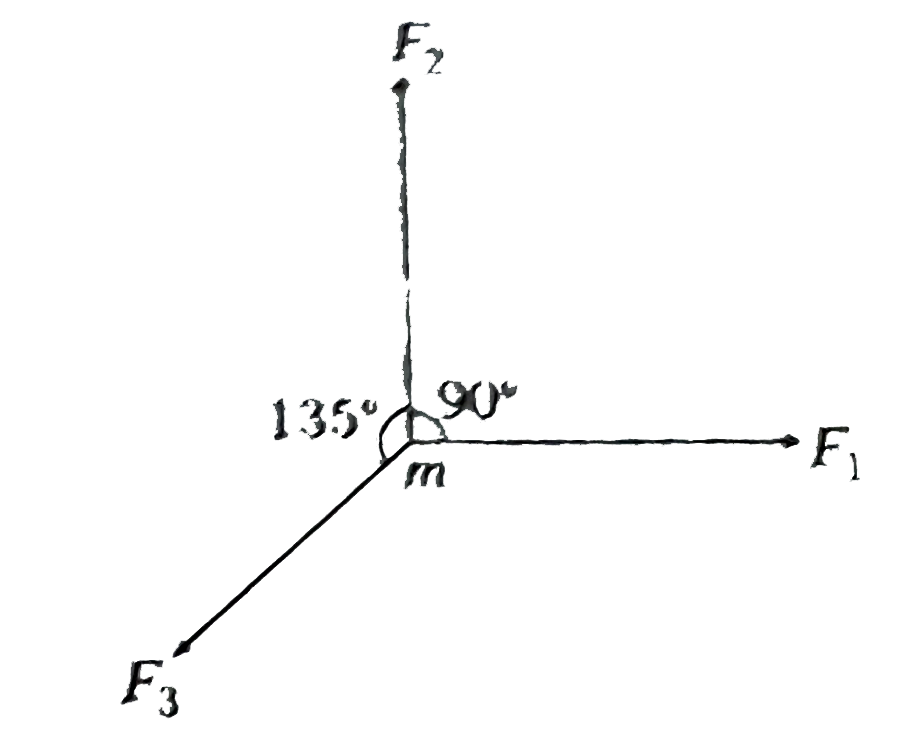The acceleration produced in a body by a force of given magnitude depends on
size of the body
shape of the body
mass of the body
none of these.
The correct Answer is:C
To solve the question, we need to analyze how the acceleration of a body is affected by the force applied to it and its mass. We will use Newton's second law of motion as our foundation.
1. Understand Newton's Second Law of Motion:
According to Newton's second law, the force (F) acting on an object is equal to the mass (m) of the object multiplied by its acceleration (a). This can be expressed mathematically as:
F=m⋅a
2. Rearranging the Equation:
We can rearrange this equation to express acceleration in terms of force and mass:
a=Fm
3. Analyzing the Equation:
From the equation a=Fm, we can see that:
- The acceleration (a) is directly proportional to the force (F) applied to the body.
- The acceleration (a) is inversely proportional to the mass (m) of the body.
4. Conclusion:
Therefore, the acceleration produced in a body by a force of given magnitude depends on both the magnitude of the force applied and the mass of the body.
Final Answer:
The acceleration produced in a body by a force of given magnitude depends on the mass of the body and the force applied to it.
According to Newton's second law, the force (F) acting on an object is equal to the mass (m) of the object multiplied by its acceleration (a). This can be expressed mathematically as:
F=m⋅a
We can rearrange this equation to express acceleration in terms of force and mass:
a=Fm
From the equation a=Fm, we can see that:
- The acceleration (a) is directly proportional to the force (F) applied to the body.
- The acceleration (a) is inversely proportional to the mass (m) of the body.
Therefore, the acceleration produced in a body by a force of given magnitude depends on both the magnitude of the force applied and the mass of the body.
The acceleration produced in a body by a force of given magnitude depends on the mass of the body and the force applied to it.
Topper's Solved these Questions
- LAWS OF MOTIONBOOK - ICSECHAPTER - LAWS OF MOTIONEXERCISE - EXERCISE - 3(C) (Numericals)
23 Videos
- LAWS OF MOTIONBOOK - ICSECHAPTER - LAWS OF MOTIONEXERCISE - EXERCISE - 3(D)
17 Videos
- LAWS OF MOTIONBOOK - ICSECHAPTER - LAWS OF MOTIONEXERCISE - EXERCISE - 3(C)
25 Videos
- ICSE ANNUAL EXAMINATION -2020BOOK - ICSECHAPTER - ICSE ANNUAL EXAMINATION -2020EXERCISE - SECTION-II
45 Videos
- LIGHTBOOK - ICSECHAPTER - LIGHTEXERCISE - TOPIC 2 Spherical Mirrors (4 Marks Questions )
9 Videos
Similar Questions
A body of mass 20 kg is kept initially at rest. A force of 80 N is applied on the body then the acceleration produced in the body is 3m/s2, force of friction acting on the body is :
View SolutionThe force exerted to pull a cart is directly proportional to the acceleration produced in the body. Express the statement as a linear equation of two variables and draw the graph of the same by taking the constant mass equal to 6 kg. Read from the graph, the force required when the acceleration produced is
(i)5ms−2 (ii)6ms−2
View Solution
Knowledge Check
The moment of a force about a given axis depends:
A(a) only on the magnitude of forceB(b) only on the perpendicular distance of force from the axisC(c) neither on the force nor or the perpendicular distance of force from the axisD(d) both, on the force and its perpendicular distance from the axis.
You know that the force applied on a body is directly proportional to the acceleration produced in the body. Write an equation to express this situation and plot the graph of the equation.
View SolutionHow does the acceleration produced by a given force depend on mass of the body ? Draw a graph to show it.
View SolutionHow does the acceleration produced by a given force depend on the mass of the body? Draw a graph to show it.
View SolutionThe acceleration of a body rolling down on an inclined plane does not depend upon
View SolutionWhen a force F acts on a body of mass m the acceleration product in the body is a . If three equal forces F1=F2=F3=F act on the same body as shown in figure the acceleration produced is

View SolutionWhen a force F acs on a body of mass m the acceleration product in the body is a . If htree equal forces F1=F2=F3=F act on the same body as shown in figure the accleration produced is

View SolutionFor a body in circular motion with a constant angular velocity, the magnitude of the average acceleration over a period of half a revolution is … times the magnitude of its instantaneous acceleration.
View Solution
